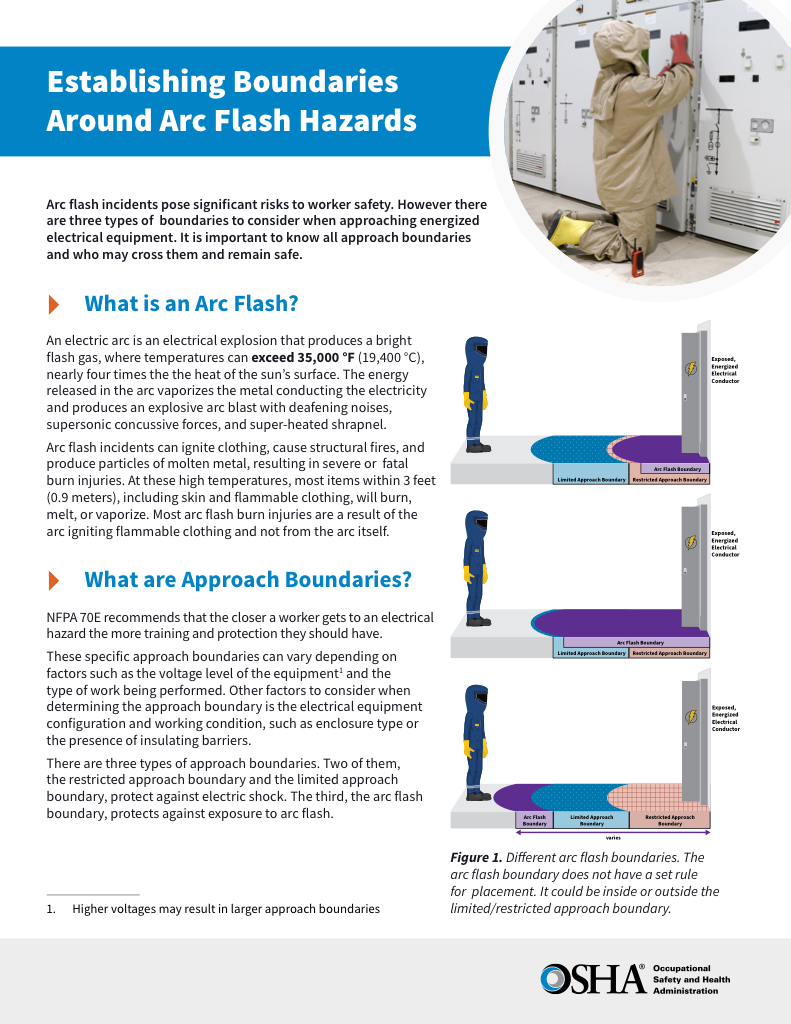NFPA 70e CPR Requirements Explained

CSA Z462 Arc Flash Training - Electrical Safety Essentials
Our customized live online or in‑person group training can be delivered to your staff at your location.

- Live Online
- 6 hours Instructor-led
- Group Training Available
Download Our OSHA 4474 Fact Sheet – Establishing Boundaries Around Arc Flash Hazards

- Understand the difference between arc flash and electric shock boundaries
- Learn who may cross each boundary and under what conditions
- Apply voltage-based rules for safer approach distances
NFPA 70E CPR requirements define rapid on-site resuscitation, AED access, and trained responders for electrical safety, arc flash incidents, and OSHA compliance, ensuring qualified workers can deliver effective first aid within minutes.
What Are NFPA 70E CPR Requirements?
NFPA 70E requires timely CPR/AED response by trained personnel for electrical incidents, aligned with OSHA.
✅ Rapid CPR/AED response capability within 3–5 minutes onsite
✅ Qualified workers trained; refreshers per certifier (e.g., AHA)
✅ Documented emergency plan, AED placement, drills near high-risk areas
The latest NFPA 70E edition states in 110.2(C)(2)(d) “Training shall occur at a frequency that satisfies the requirements of the certifying body.” That means that the standard now sets minimum NFPA 70e CPR Requirements for both CPR and First Aid training at a certain interval and not just based on "best safe work practices." See how this aligns with the broader scope of NFPA 70E as the electrical safety in the workplace standard by reviewing its intent and application.
In previous NFPA 70E editions, CPR, First Aid, and AED training were required annually. Annual training may have been more frequent than the requirements set by other organizations, such as the American Heart Association (AHA), which recommends CPR training every two years. For the general public, that might be sufficient, but electrical workers face a much greater risk from ventricular fibrillation due to shock than the general public and therefore require more frequent training. Annual CPR training therefore seems better. For specifics on recertification cadence, consult how often NFPA 70E training is required to align your program with risk and role.
During the most recent NFPA 70E review cycle, the whole issue came up that the standard does not set "best safe work practices", it sets "minimum requirements". Companies are expected to meet or exceed the NFPA 70E minimum requirements.
Test Your Knowledge About Arc Flash!
Think you know Arc Flash? Take our quick, interactive quiz and test your knowledge in minutes.
- Instantly see your results and score
- Identify strengths and areas for improvement
- Challenge yourself on real-world electrical topics
To translate that expectation into policy, review NFPA 70E training requirements and map them to your internal safety management system.
The whole idea of the NFPA 70E standard setting "minimum requirements" vs. "best safe work practices" has been the subject of debate for several years.
If you need foundational context for those discussions, start with what NFPA 70E is and why it differentiates minimums from best practices.
The committee voted to establish that the NFPA 70E indeed sets "minimum requirements", and not just "best safe work practices". As part of that approach, the standard now states that the training interval requirement follows that of the certifying body, and that would include CPR training. Organizations should also note updates captured in the NFPA 70E 2024 edition when setting training intervals and content.
Visit Our NFPA 70e Arc Flash Training Course Beyond enrollment details, explore NFPA 70E training options that satisfy both certification and practical skills requirements.
This comprehensive NFPA 70E course overview outlines modules on hazard assessment, PPE selection, and emergency response.




